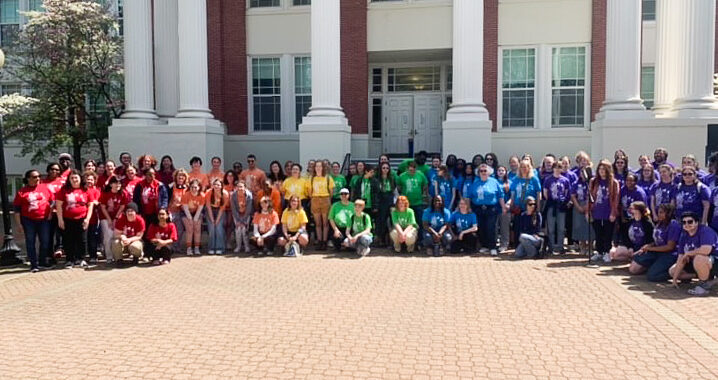Student Guilt Up by 25%
4 min readBy Brynn Boyer
The number of Mary Washington students found responsible for alcohol violations last year jumped nearly 25 percent over the previous year, but UMW officials say the sudden rise is not due to any sort of deliberate crackdown on drinkers by the school.
“Between 2005 and 2006 I can think of no changes in judicial procedures that would lead to a slightly higher percentage of students being found responsible,” said Judicial Affairs and Community Responsibility Director Raymond Tuttle in an email interview.
He added, “There is and never has been any attempt on the part of the Judicial Review Board (or any other part of the judicial system) to ‘crack down’ on violations.”
Some students, however, said they were concerned about a backlash to the possible perception of more stringent enforcement of the alcohol laws at UMW.
“If there appears to be a crackdown, it will drive more serious drinking off-campus which could be dangerous,” junior Tim Carroll said.
In 2005, 346 students were charged with liquor law violations on campus, with 191 students found responsible. Last year, the school charged 349 referrals students with 235 students found responsible, an increase of 23 percent.
Police Chief James Snipes said he could speculate on the cause of the increase but that since he doesn’t deal with the majority of the cases, he couldn’t say for sure why it occurred..
“I know that the Judicial Review Board (JRB) turns over from year to year so it could just be a difference in perspectives of the members,” Snipes said.
Sarah Goodrum, president of the JRB, declined to comment.
According to the UMW Annual Security Report, the majority of liquor law violations occur in residence halls. Last year, 96 percent of incidents occurred in residence halls, or 336 out of 349 incidents. According to Snipes, the majority of the residence life incidents do not involve the police.
Director of Residence Life Chris Porter said, “The process doesn’t always need to involve the police. Oftentimes there is no reason unless the students are being uncooperative or threatening. Generally when the police are involved, there’s going to be an arrest.”
According to Porter, the process starts when a student is confronted and an incident report is documented.
“The Resident Assistants are told to be on the lookout for unusual behavior,” Porter said. “The significant element is safety. There are some things you just can’t ignore.”
Once an incident report is filed, Judicial Affairs takes over the case.
According to Tuttle, the most common alcohol violation is consumption or possession of alcohol by students under the age of 21, and that the most common sanction received by students found responsible for an alcohol violation is AlcoholEdu, an online alcohol education course. The course takes a couple of hours to complete and contains a quiz so students can track their progress.
When sophomore Andrew Rozsa was found responsible last year for an alcohol violation his sanction was to write a 1,000 word essay on a choice of three topics, what he called a “happy hour” essay.
“I thought it was a waste of time and I recall having a beer while writing the paper,” Rozsa said in an e-mail, “but for a first violation for underage drinking on campus you could say I thought it was fair.”
At Longwood University, with an enrollment of approximately 3,900 students, there were 265 on-campus disciplinary actions for liquor law violations in 2005. 2006 statistics were not available. At Christopher Newport University, slightly larger than Mary Washington with 4,800 students, there were 315 judicial referrals for liquor law violations in 2005 and 235 referrals in 2006.
Several students commented that compared to other colleges, Mary Washington doesn’t have an alcohol problem.
“I’m sure it happens but I don’t really see it,” junior Kim Slaybecker said, referring to incidents that happen on-campus. “I definitely don’t see Mary Washington being as bad as other schools.”
Carroll agreed. “I’ve heard stories from other schools and I don’t think we’re out of the norm of a regular college campus.”
Porter, however, said that the statistics in the security report don’t accurately represent what goes on in residence halls because underage drinking is much more of a problem than the numbers suggest.
“The statistics only show the people who have brought themselves to our attention,” she said. “We aren’t catching everyone.”
Although the question of whether alcohol is a major problem on-campus is up for debate, Tuttle emphasized that no one is trying to be tougher on students who have been referred.
“The judicial system is just trying to do a better job of what it has been doing all along: providing students with education, and doing what it can to make UMW a safe environment to live and work in,” he said.











